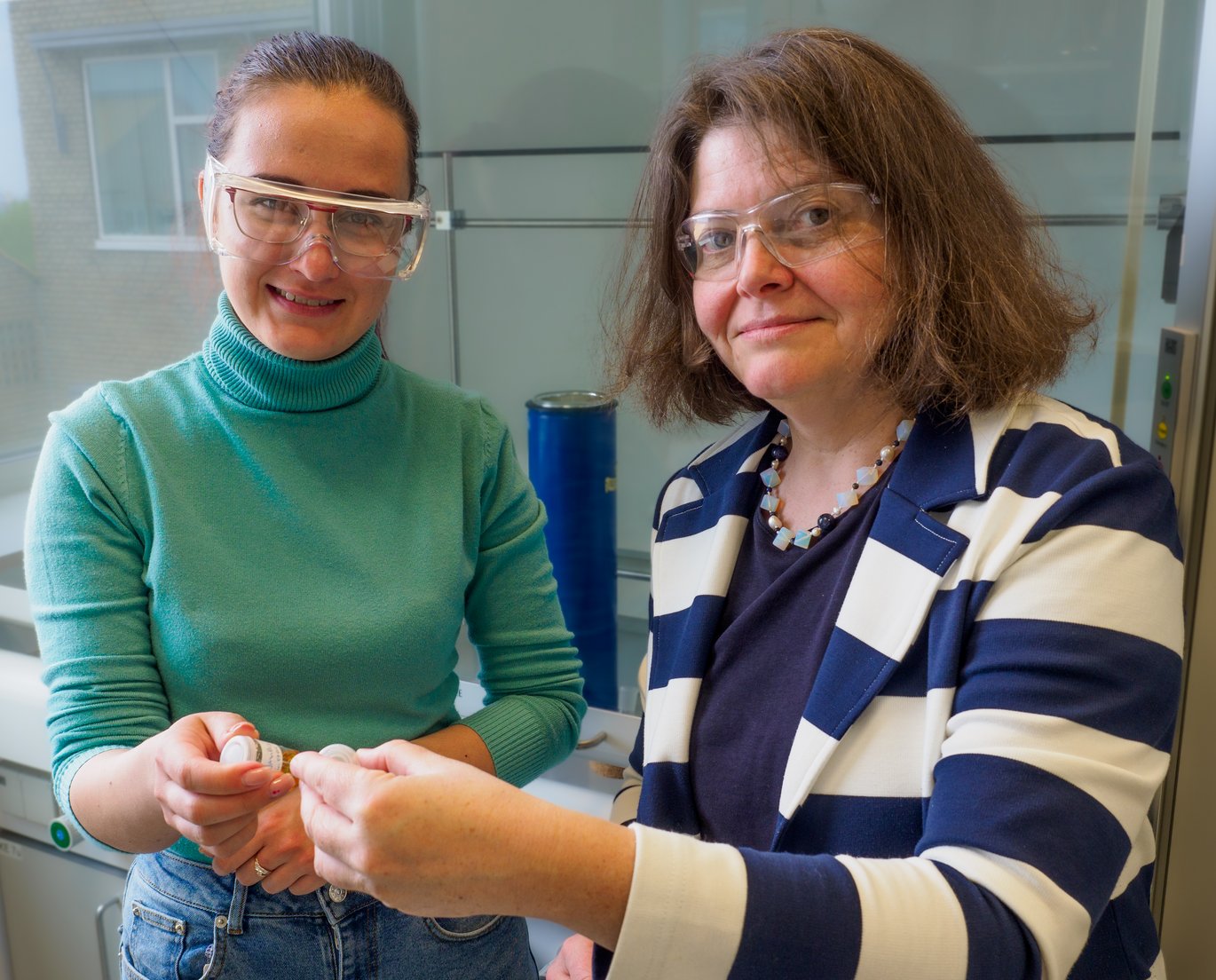AU researcher swaps travel money for a new Ukrainian employee
Corona prevented chemistry professor Anja-Verena Mudring from using the travel budget from her VILLUM Investigator grant. Now she is instead using the money to pay for a young chemist refugee from Ukraine.

"When one door closes; a new one opens." Professor Anja-Verena Mudring knows all about the quote.
She received DKK 40 million for her research project in 2021, but the coronavirus pandemic forced the project's international research team to hold video meetings instead of meeting in person.
As a result, she has saved a considerable sum on air tickets. And when refugees from Ukraine started arriving, she asked the VILLUM Foundation to have her travel budget converted into a salary for a Ukrainian researcher. And the foundation agreed.
"I got the idea to convert the travel money from a colleague at Aalborg University. Then I advertised a position on jobsforukraine.net and I received many enquiries. Now we’ve employed Alina from Kyiv. When we talked to her for the first time, there was an air-raid alarm, and she had to seek refuge in an underground station. We have enough for a six-month position and I hope that will buy Alina time," says Anja-Verena Mudring.
Fits nicely
27-year-old Alina Fedorets has started her new job at the Department of Chemistry, and has temporarily moved in with professor's assistant, although AU Housing has secured her a room in the IC Dormitory, which she will take over soon. She has a Master’s degree in polymer chemistry, and she worked at a pharmaceutical company in Kyiv before Russian missiles made life in the capital uncertain.
Anja Verena Mudring's research project is looking at how ionic fluids control the formation of nanomaterials.
"The methods that Alina was working with in Ukraine are very similar to those we use with ionic fluids. Therefore, she fits nicely into our lab," says Anja-Verena Mudring.
Anja-Verena had interviews with six candidates before choosing Alina Fedorets.
"They have excellent degree programmes in Ukraine. But unfortunately, I only had the opportunity to hire one," she says.
Peace at work
Working in Anja-Verena Mudring’s research group is clearly very different from working with analytical chemistry in industry, but Alina knows the tools and methods.
And more than anything there is peace.
"I started looking for a job abroad a week after the war broke out. The company I was working for closed down because it couldn't afford to pay our salaries. At that point, many of my colleagues felt that they had to sleep at work, and they stayed there around the clock because it was too dangerous to go home. And then the company's drugs warehouse burned down. It was in an area where there was fighting," says Alina Fedorets.
Her old workplace slowly opened up again at the end of March, and some of Alina Fedorets' old colleagues have returned to work.
Alina Fedorets does not know whether she will also return at the end of her six months of employment at AU.
"It’s too early to make plans for what I’ll do in six months. And the situation in Ukraine is still very uncertain," she says.
